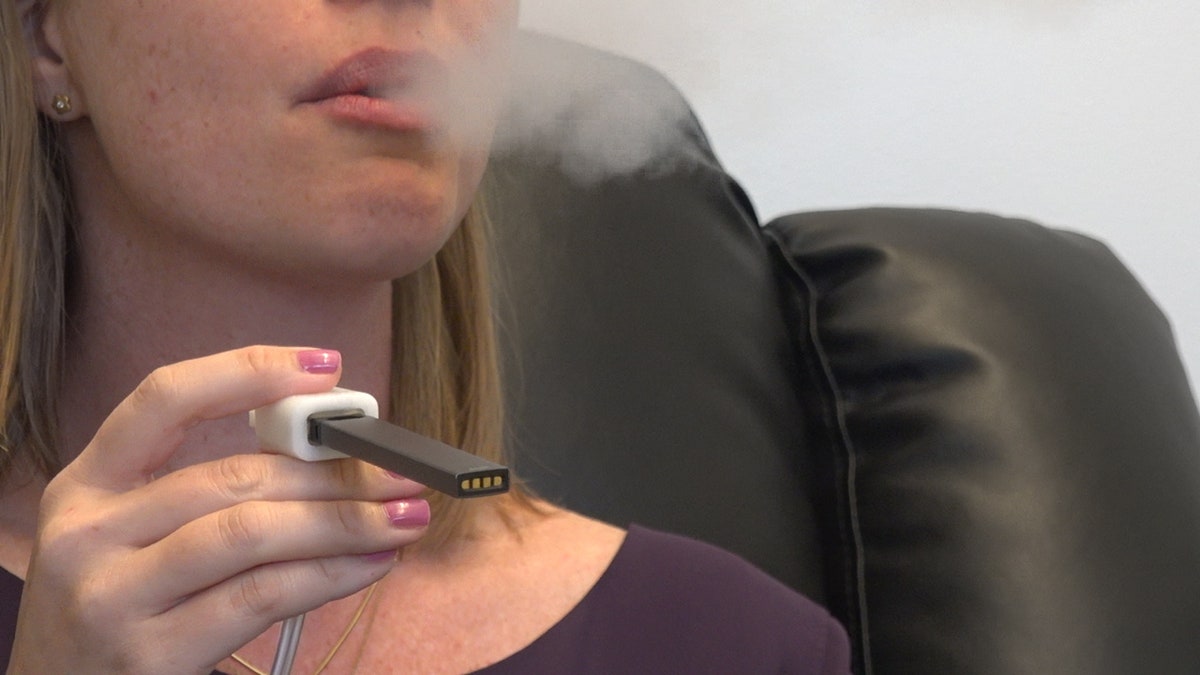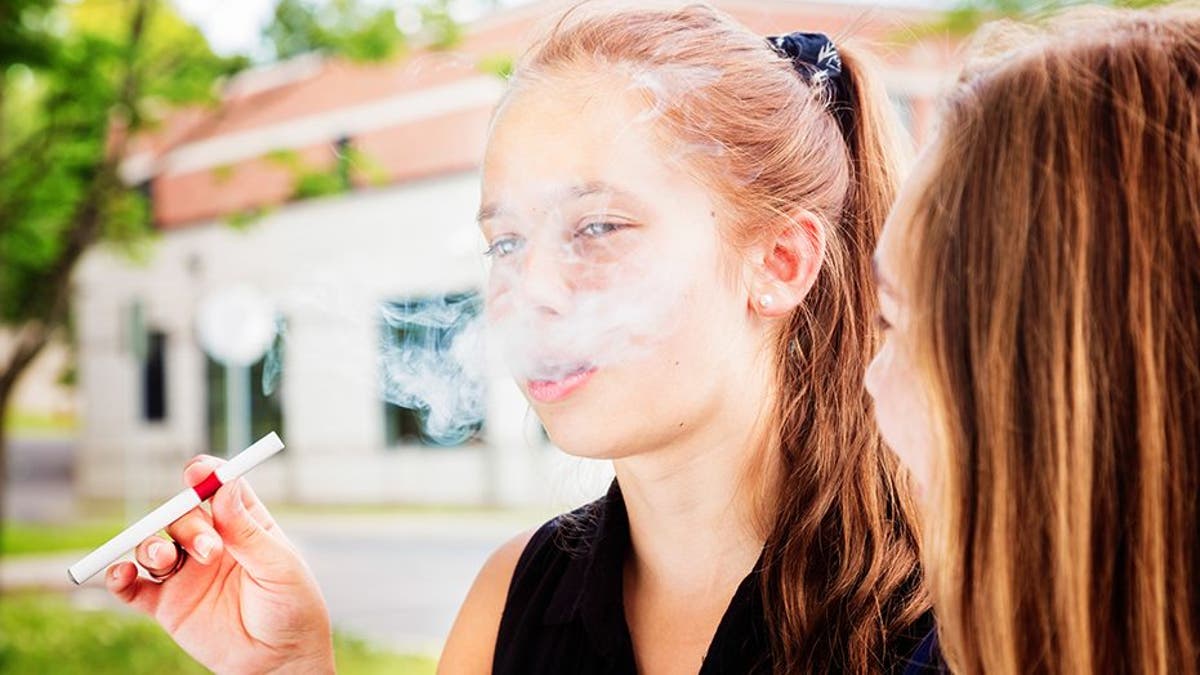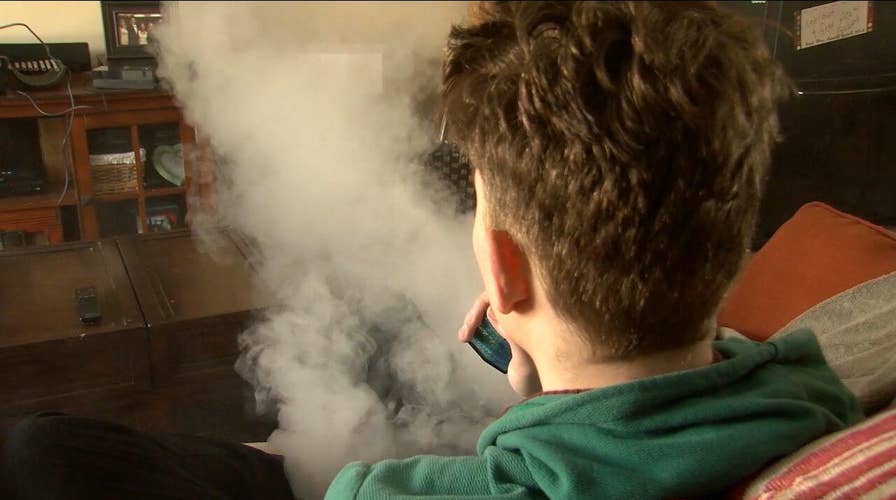Vape industry faces growing scrutiny for marketing tactics geared toward teens
The marketing tactics of e-cigarette companies are facing a Congressional probe and at least two separate investigations from attorneys general in Massachusetts and Florida.
BOSTON – When Dorian Fuhrman's 14-year-old son Phillip and a friend came home from school one day, what they told her made her furious.
"They said, 'you know, something very strange happened today,'" Fuhman said. "And after talking a little bit with them, we also were stunned."
Fuhrman's son told her a representative from a vape company came to their school during a drug and alcohol prevention assembly, promoting the product as "completely safe."
Since the rates of teens vaping have doubled since 2017, the marketing tactics of vape companies are facing a congressional probe and at least two separate investigations from attorneys general in Massachusetts and Florida. Critics have questioned how aggressively they have marketed to teens.
"We knew that our sons were doing it and their friends were doing it and it was becoming widespread," Dorian Fuhrman said. "But after this incident, we really couldn't sit by."

The epidemic has caused numerous lung injuries, killing 33 people so far, and sickening hundreds. Researchers say what was once advertised as a way to get cigarette smokers off their bad habit has become the first step in causing young addiction. (Elina Shirazi)
She and another parent at the school launched an organization called Parents Against Vaping eCigs, leading a rallying cry of parents who say their teens were targetted by the e-cigarette industry. Last week, she testified before Congress calling for tougher regulations of the industry.
"They targeted kids where they lived, on social media," Fuhrman said. "They hired influencers. They threw parties. They really started this."
A July congressional report found that Juul Labs had spent more than $200,000 to hire trendy Instagrammers and other influencers to reach teens on their feeds.
Last week, a study found that bots on social media accounted for nearly 80% of the talk about vaping on social media.
CDC CORRECTS NUMBER OF VAPING-LINKED LUNG ILLNESS CASES
David Gerzof Richard, a marketing professor at Emerson College, said the tobacco industry is adapting old tactics for the digital age.
"They were regulated out of being able to advertise on traditional media, things like billboards, magazine ads, TV ads. Those were suddenly off the table," Gerzof Richard said. "So what they did is they readjusted on to digital media, specifically social media, and they went into a very targeted approach."
Gerzof Richard said as regulators failed to keep with the digital age, the companies targeted their social media ads to zip codes and age groups. But he argues that traditional big tobacco tactics like producing flavors that taste like candy have also helped to entice a younger market.
Last month, President Trump pledged to ban the sale of flavored e-cigarettes. First Lady Melania Trump also hosted a listening session with a group of teens at the White House last week about the epidemic.
"I am deeply concerned about the growing epidemic of e-cigarette use in our children,” the first lady tweeted. “We need to do all we can to protect the public from tobacco-related disease and death, and prevent e-cigarettes from becoming an on-ramp to nicotine addiction for a generation of youth.”
Meanwhile, the Vapor Technology Association, an e-cig trade group, has acknowledged changes need to be made. However, the group opposes a flavor ban.
"A flavor ban will not eliminate any of those marketing tactics," said Tony Abboud, the executive director at the Vapor Technology Association. "So, we say it is time to put those in place, a ban advertising on television, for example, [and] ban any positive print advertising or public advertising that's not directed solely to an adult audience."
TEENS SAY VAPING DEATHS, POTENTIAL FLAVOR BAN NOT STOPPING THEM FROM SMOKING E-CIGARETTES
The group has pitched a plan to regulators called 21 and Done, calling for a law that raises the minimum age to buy tobacco products from 18 to 21 nationally, along with implementing "strict marketing standards" that would ban the use of candy and cartoon imagery
Fuhrman thinks it's too little too late – especially with kids less in tune with TV and print magazines these days.
"At the end of the day, flavors are what are initiating kids to use these devices and the high levels of nicotine are hooking them on these devices," Furhman said. "The flavor bans that are being proposed around the country, and that the president himself proposed several weeks ago, is really the only way to slow down this epidemic."

Teen vaping rates have doubled since 2017, with 25 percent of high school seniors reportedly using e-cigarettes. (Nicolas McComber)
With the high standards anticipated in forthcoming Food and Drug Administration requirements to stay on the market, Gerzof Richard thinks the regulations pitched by the Vapor Technology Association are to save face. The FDA declined to go on the record for this story.
"They understand it's a big problem because if they don't curtail it, then the government will," Gerzof Richard said. "And whenever the government gets involved, it's never a good ending for the industry."
CLICK HERE TO GET THE FOX NEWS APP
Fuhrman said her son, now 16, is now helping his mom get the message out through Parents Against Vaping about what happened that one day at school, hoping it never happens again.
More than 600 vape manufacturers and shop owners sent a letter to Congress earlier this month pushing for other measures they said would curb teen vaping.









































